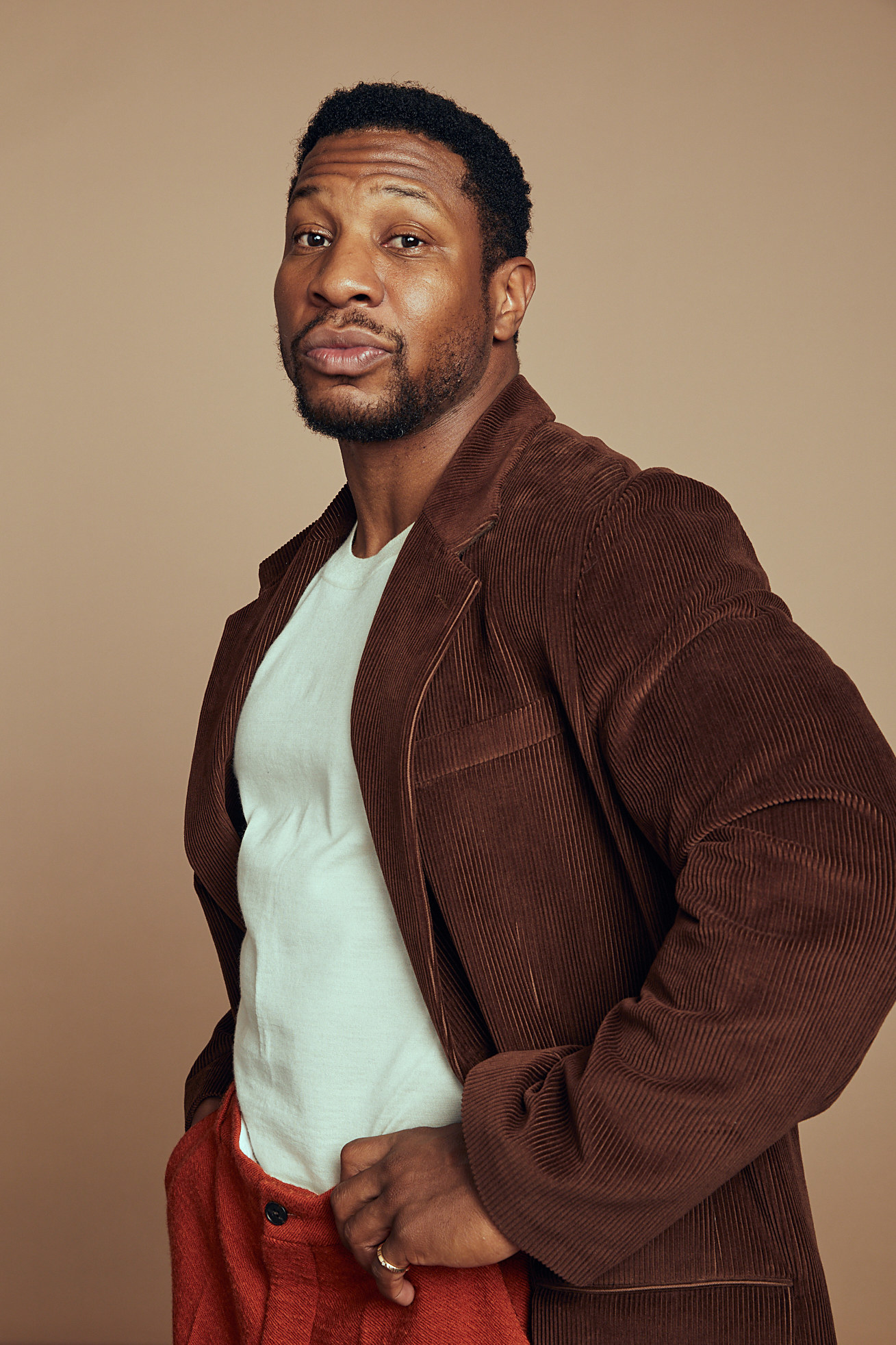Jonathan Jacob Meijer - The Story Of A Donor
There's a name that has, in a way, become quite well-known in recent times, particularly when we talk about the fascinating, sometimes quite complicated, world of reproductive medicine. This individual, Jonathan Jacob Meijer, has found himself at the center of a rather big discussion, sparking conversations that reach far beyond medical clinics and into family homes, legal chambers, and even ethical debates across the globe. His actions, you see, have truly brought some important questions to the surface about how we approach donor conception and what it means for the families involved.
You might be wondering, is that really possible, for one person to have such a widespread impact? Well, as a matter of fact, his story highlights how one person's choices, when they involve something as fundamental as creating new life, can actually have a ripple effect that touches hundreds of people. His case, frankly, puts a spotlight on the often-unseen side of fertility treatments, bringing up big ideas about transparency, the well-being of future generations, and the responsibilities that come with helping others build their families.
This piece will, in some respects, take a closer look at the life and activities of Jonathan Jacob Meijer, exploring how his story unfolded and the significant conversations it has started. We'll talk about the ethical puzzles his situation presents, the legal steps taken to address them, and the very real impact on the many families connected to him. It’s a story that, you know, really makes us think about the rules and guidelines we have in place, and whether they are truly fit for purpose in our quickly changing world.
Table of Contents
- The Life of Jonathan Jacob Meijer
- How Did Jonathan Jacob Meijer Become Known?
- What is the Story Behind Jonathan Jacob Meijer's Donations?
- The Ethical Questions Around Jonathan Jacob Meijer's Actions
- What Are the Legal Ramifications for Jonathan Jacob Meijer?
- The Impact on Families Linked to Jonathan Jacob Meijer
- What Does the Future Hold for Jonathan Jacob Meijer and Donor Regulations?
- Looking Ahead at Donor Guidelines and Jonathan Jacob Meijer
The Life of Jonathan Jacob Meijer
Jonathan Jacob Meijer, a man from the Netherlands, found himself in the public eye for a rather unusual reason. His story is one that, in a way, shows how individual choices can have very broad consequences, especially when those choices involve something as personal as human reproduction. He was, to be honest, not a public figure in the traditional sense, but his activities as a sperm donor brought him a lot of attention, making his name recognizable to many people interested in fertility matters and family law.
His background, before all of this, was not widely known, which is fairly typical for someone who starts out as a donor. People who donate sperm usually do so with a degree of privacy, providing a service that helps others realize their dream of having children. For Jonathan Jacob Meijer, however, the scale of his donations eventually became something that could not stay hidden, leading to a significant legal challenge and a lot of public discussion. It's almost as if his actions brought a previously quiet topic into the bright lights of public debate, forcing a collective look at how things are done.
You see, the details of his personal life outside of his donor activities are not really the main focus here. What truly matters, in this context, are the actions he took as a donor and the sheer number of families he helped, or perhaps, in some cases, unintentionally complicated. His story is, therefore, less about who he is as a person in his day-to-day existence and more about the bigger questions his activities raise for society as a whole. It’s a very unusual situation that, honestly, has made many people pause and think.
Personal Details of Jonathan Jacob Meijer
| Nationality | Dutch |
| Primary Activity | Sperm Donor |
| Estimated Number of Children Fathered | Reported to be between 500 and 600 (some sources say more) |
| Legal Action Taken Against Him | Yes, in the Netherlands |
| Outcome of Legal Action | Ordered to stop donating and contact clinics to destroy samples |
How Did Jonathan Jacob Meijer Become Known?
Jonathan Jacob Meijer didn't, in fact, seek fame, but his name became widely known through a series of events that highlighted a very particular issue within the world of fertility services. For quite some time, he had been donating sperm, seemingly within the established guidelines of various clinics. However, the sheer volume of his donations, and the fact that he was donating to multiple places, both within the Netherlands and abroad, eventually led to a situation that caught the attention of authorities and, more importantly, the families involved. It’s a bit like a secret that just got too big to keep.
The discovery of his extensive donor activities came about when some of the children conceived through his donations, or their parents, started to connect with each other. This often happens through online groups and registries, where donor-conceived individuals or their families can, you know, look for half-siblings or their biological donors. When these connections began to multiply, it became clear that Jonathan Jacob Meijer had fathered a number of children far beyond what is typically considered acceptable or safe in many countries. This revelation, frankly, raised a lot of eyebrows and some serious concerns.
This emerging pattern of numerous half-siblings across different families and even different countries brought the issue to the forefront. It wasn't just a matter of a few families; it was, in a way, a large network of people connected by one biological father. This discovery eventually led to legal action, as parents and organizations felt that the existing rules had been, perhaps, stretched too far or simply weren't adequate to handle a situation of this scale. So, that's really how his name entered the public conversation, becoming a symbol for a much bigger debate about donor limits.
What is the Story Behind Jonathan Jacob Meijer's Donations?
The story behind Jonathan Jacob Meijer's donations is, in some respects, one of ambition and a system that, perhaps, had some gaps. He reportedly began donating sperm many years ago, providing his genetic material to various clinics. What makes his case stand out is that he didn't limit his donations to just one clinic or follow the typical guidelines that aim to prevent one donor from fathering too many children. Instead, he apparently used different clinics, sometimes under slightly different names or aliases, and also made donations directly to individuals through online platforms. This approach, you know, allowed him to bypass the usual safeguards.
The motivation behind such extensive donations isn't entirely clear, but it certainly appears that he was able to continue for a considerable period because of a lack of centralized tracking. In many places, there isn't a single national database that records all sperm donations, especially across different clinics or if donations are made privately. This absence of a comprehensive system meant that clinics, each acting independently, might not have been aware of the full extent of Jonathan Jacob Meijer's activities. It's a bit like different parts of a puzzle that just weren't connected.
So, the story isn't just about Jonathan Jacob Meijer himself; it's also about the mechanisms in place, or the lack thereof, that allowed this situation to develop. His case has, in fact, served as a powerful example of why better oversight and more robust international cooperation might be needed in the field of reproductive assistance. It really showed everyone that the current way of doing things might need some serious adjustments to prevent similar situations from happening again. It's a very clear illustration of how systems can be exploited, even unintentionally.
The Ethical Questions Around Jonathan Jacob Meijer's Actions
The actions of Jonathan Jacob Meijer have, honestly, brought up a whole host of ethical questions that are quite important for society to consider. One of the biggest concerns revolves around the well-being of the children conceived through his donations. When one donor fathers hundreds of children, there's a significantly increased chance of half-siblings unknowingly meeting and forming relationships, possibly even romantic ones, without realizing they share a biological parent. This raises serious concerns about potential consanguinity, or inbreeding, down the line, which could lead to health risks for future generations. It’s a pretty serious thought, isn’t it?
Another major ethical point is the right of donor-conceived individuals to know their biological heritage and to have a manageable number of half-siblings. Many people who are donor-conceived express a desire to connect with their biological relatives, and discovering they have hundreds of half-siblings can be, you know, quite overwhelming and difficult to process. It can also dilute the sense of identity and connection that some seek with their biological family, making it feel less personal and more like a vast, sprawling network. This is, in a way, about the individual's sense of self and belonging.
Furthermore, there are questions about the responsibility of clinics and the donor himself. Should there be stricter limits on how many children one donor can father? Who is ultimately accountable when these limits are exceeded, especially across different jurisdictions? These are, frankly, not easy questions to answer, and Jonathan Jacob Meijer's situation has forced a global conversation about these very complex ethical dilemmas. It's a topic that really makes us think about the long-term impact of current practices and how we can best protect the interests of everyone involved, especially the children.
What Are the Legal Ramifications for Jonathan Jacob Meijer?
The legal consequences for Jonathan Jacob Meijer have been quite significant, particularly in his home country, the Netherlands. A foundation representing donor-conceived children and some of the parents involved initiated a civil lawsuit against him. The core of their argument was that his extensive donations posed a risk to the well-being of the children, specifically regarding the potential for unwitting incest and the psychological impact of having so many half-siblings. This legal challenge, you know, was a pretty big deal, as it sought to set a precedent for donor responsibility.
In a landmark ruling, a Dutch court sided with the plaintiffs. The court found that Jonathan Jacob Meijer had, in fact, intentionally misled clinics about the extent of his donations and had continued to donate even after being asked to stop by some institutions. The judge ordered him to immediately cease all further donations. Furthermore, he was instructed to contact any clinics he had used, both in the Netherlands and abroad, to request that they destroy any remaining samples of his sperm. This was, in a way, a very strong message from the legal system.
The court's decision also included a penalty for non-compliance, meaning that if Jonathan Jacob Meijer were to donate again, he would face a hefty fine for each instance. This ruling was, to be honest, a crucial moment for donor regulation, as it highlighted the legal system's capacity to intervene when donor practices are deemed to be harmful or irresponsible. It certainly set a very clear boundary and, arguably, sent a message to other donors and clinics about the importance of adhering to ethical guidelines. It's pretty clear that the legal system took this very seriously.
The Impact on Families Linked to Jonathan Jacob Meijer
For the families who used Jonathan Jacob Meijer's donations, the discovery of his extensive activities has had a really profound impact. Many parents chose donor conception with the understanding that their child would have a limited number of half-siblings, typically around 25 in some countries, to ensure a reasonable degree of genetic separation and to manage potential connections. Learning that their child is one of potentially hundreds of children fathered by the same donor can be, you know, quite a shock and a source of deep concern. It really changes the picture they had imagined for their family.
The children themselves, as they grow older and become aware of their origins, may also face unique challenges. Imagine finding out you have hundreds of half-siblings spread across different countries. This can, in some respects, create a complex identity puzzle, as they try to understand their place in such a large biological family. Some may feel a strong desire to connect with these siblings, while others might feel overwhelmed or even a sense of being part of a mass production, rather than a unique family unit. It’s a pretty heavy thing for a young person to grapple with.
Moreover, the situation has, frankly, caused distress and anger among some parents who feel they were misled by clinics or by the donor himself. They had made a significant life decision based on certain expectations about donor anonymity or limits, and those expectations were, apparently, not met. This has led to calls for greater transparency, stricter regulations, and better support systems for donor-conceived families. The impact on these families is, therefore, not just theoretical; it’s very real and deeply personal, affecting their sense of security and trust in the system that helped them build their family.
What Does the Future Hold for Jonathan Jacob Meijer and Donor Regulations?
For Jonathan Jacob Meijer himself, the future seems to involve a strict prohibition on further donations, enforced by legal order. The court ruling has, essentially, put a stop to his activities as a donor. He is now under legal obligation to ensure that his past donations are no longer used for new conceptions. This means he will likely remain a figure in the ongoing discussions about donor ethics, but his direct involvement in creating new families through donation has, to be honest, been brought to an end. It's a pretty definitive outcome for him personally.
As for donor regulations more broadly, the case of Jonathan Jacob Meijer has, in a way, acted as a significant wake-up call for governments, fertility clinics, and policymakers around the world. It has highlighted the urgent need for more robust and internationally coordinated rules regarding sperm and egg donation. Many countries are now looking at their existing laws and considering how to strengthen them to prevent similar situations from arising. This often includes discussions about centralized registries, clearer limits on the number of offspring per donor, and better information sharing between clinics, even across borders. It’s a very important conversation that’s happening right now.
The future of donor regulations will, therefore, likely involve a move towards greater accountability and transparency. There's a growing recognition that the interests of donor-conceived individuals and their families must be prioritized. This could mean more stringent screening processes for donors, clearer guidelines on how many families one donor can assist, and improved mechanisms for tracking donations globally. The story of Jonathan Jacob Meijer has, apparently, pushed this conversation forward quite a bit, making it clear that the old ways of doing things might not be sufficient for today's interconnected world. It's about ensuring a safer and more ethical path for everyone involved in the process of building families through donation.
Looking Ahead at Donor Guidelines and Jonathan Jacob Meijer
When we look ahead at donor guidelines, it’s pretty clear that the case involving Jonathan Jacob Meijer will continue to be a reference point. His story has, frankly, become a powerful example of what can happen when existing rules are insufficient or when there's a lack of global coordination. It serves as a stark reminder that while the goal of helping people create families is noble, it must be balanced with the long-term well-being and rights of the children who are conceived through these methods. This is, in a way, about learning from past experiences to build a better future.
Many experts in reproductive law and ethics are now advocating for a more unified approach to donor limits. This could involve international agreements or shared databases that would allow clinics to track donations more effectively, preventing one donor from exceeding limits across different countries. There's also a growing call for greater openness, where donor-conceived individuals have easier access to information about their biological origins and their half-siblings, should they choose to seek it. This is, you know, about empowering individuals with knowledge about their own story.
The discussions sparked by Jonathan Jacob Meijer's activities are, therefore, not just about preventing future large-scale donor situations; they're also about shaping a more ethical and transparent future for assisted reproduction. It’s about creating a system that truly supports all parties involved, from the donors themselves to the parents and, most importantly, the children. His case has, in fact, made a lasting mark on how we think about donor conception, pushing us to consider the bigger picture and the ripple effects of every decision made in this sensitive area. It’s a very important step towards ensuring better practices for everyone.

Jonathan Majors Says He 'Walked Out' of His First Marvel Meeting Before

How Ant-Man and Creed III Star Jonathan Majors Became Hollywood's Most

Jonathan Majors Behind The Scenes Facts